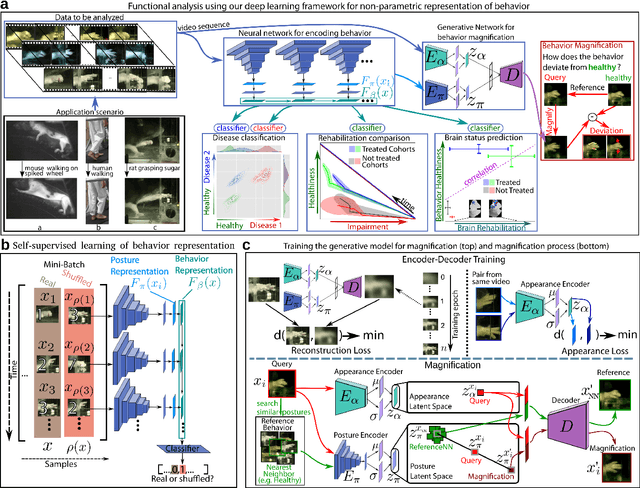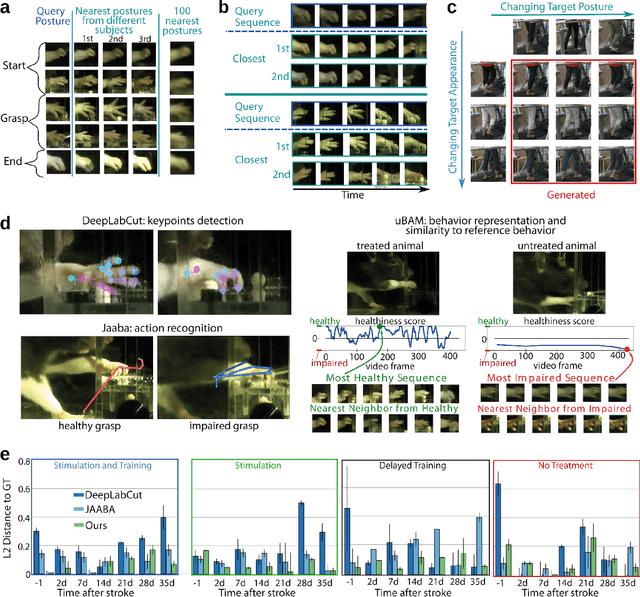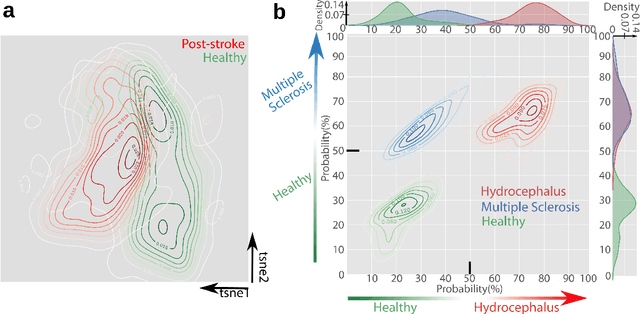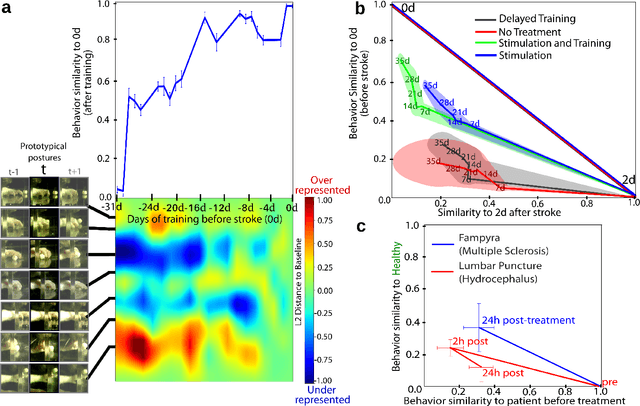uBAM: Unsupervised Behavior Analysis and Magnification using Deep Learning
Paper and Code
Dec 16, 2020



Motor behavior analysis is essential to biomedical research and clinical diagnostics as it provides a non-invasive strategy for identifying motor impairment and its change caused by interventions. State-of-the-art instrumented movement analysis is time- and cost-intensive, since it requires placing physical or virtual markers. Besides the effort required for marking keypoints or annotations necessary for training or finetuning a detector, users need to know the interesting behavior beforehand to provide meaningful keypoints. We introduce uBAM, a novel, automatic deep learning algorithm for behavior analysis by discovering and magnifying deviations. We propose an unsupervised learning of posture and behavior representations that enable an objective behavior comparison across subjects. A generative model with novel disentanglement of appearance and behavior magnifies subtle behavior differences across subjects directly in a video without requiring a detour via keypoints or annotations. Evaluations on rodents and human patients with neurological diseases demonstrate the wide applicability of our approach.
 Add to Chrome
Add to Chrome Add to Firefox
Add to Firefox Add to Edge
Add to Edge